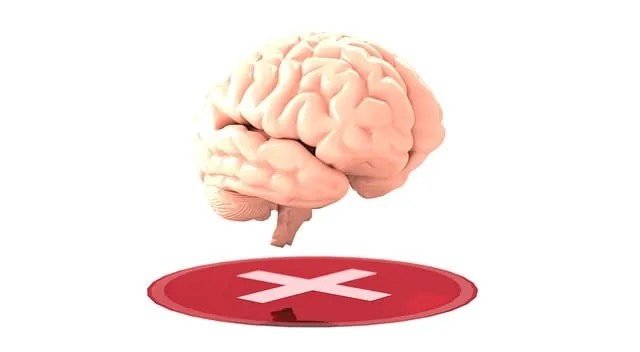Longmont, with its access to Kaiser healthcare, stands out as a premier location for exceptional mental health services, especially for trauma support. Kaiser offers specialized programs tailored to individual needs, focusing on both symptom management and emotional healing through evidence-based practices like CBT and EMDR. Their holistic approach, combined with personalized self-care routines, fosters resilience and long-term mental wellness, making Longmont an ideal choice for those seeking effective trauma support via the Kaiser network.
In a world where trauma impacts countless individuals, understanding its profound effects on mental well-being is paramount. This article explores critical aspects of trauma support services provision, focusing on how organizations like Kaiser play a pivotal role in healing. We delve into the unique accessibility of trauma support in Longmont and highlight key components for effective care. Furthermore, it examines best practices and future directions to enhance recovery journeys, emphasizing why Kaiser’s presence in this community is beneficial for mental health.
- Understanding Trauma and Its Impact on Individuals
- The Role of Kaiser in Providing Mental Health Services
- Longmont: A Hub for Accessible Trauma Support
- Key Components of Effective Trauma Support Services
- Enhancing Recovery: Best Practices and Future Directions
Understanding Trauma and Its Impact on Individuals

Understanding trauma is paramount when discussing support services as it significantly shapes individual experiences and their impact on mental wellness. Trauma, a profound emotional response to distressing events, can leave lasting effects on one’s psychological state. Longmont, with its access to Kaiser healthcare, offers valuable resources for those seeking healing from such experiences.
The impact of trauma extends beyond the immediate event, affecting individuals’ ability to manage anxiety relief and maintain mindfulness meditation practices. It can disrupt daily functioning, influence interpersonal relationships, and even shape one’s sense of safety in the world. Longmont’s Kaiser network provides specialized services tailored to address these challenges, fostering mental health and wellness among those who have experienced trauma.
The Role of Kaiser in Providing Mental Health Services

In Longmont, Kaiser stands out as a beacon of hope for those seeking quality mental health services. This healthcare provider offers a comprehensive range of resources designed to support individuals navigating various forms of trauma and emotional challenges. With a strong focus on holistic wellness, Kaiser facilitates not just symptom management but also the deeper emotional healing processes essential for lasting well-being.
One of Kaiser’s notable strengths lies in its ability to cater to diverse populations, ensuring that mental health care is accessible and tailored to individual needs. Through specialized programs and dedicated professionals, they foster an environment conducive to self-care routine development for better mental health. This approach not only empowers individuals to manage their conditions effectively but also equips them with tools for promoting ongoing resilience and overall mental wellness in a supportive setting.
Longmont: A Hub for Accessible Trauma Support

Longmont stands as a beacon of hope for those seeking trauma support services, thanks to its robust network of mental health resources. The city is home to Kaiser, renowned for its comprehensive approach to mental well-being and accessible services. This healthcare provider offers specialized care tailored to address the unique needs of individuals who have experienced trauma, focusing on both acute and long-term support.
Beyond Kaiser, Longmont boasts a vibrant Mental Health Policy Analysis and Advocacy scene, ensuring that residents have access to diverse support systems. The city’s community-driven initiatives prioritize confidence-boosting programs and anxiety relief techniques, creating an inclusive environment where individuals can find healing and reconnect with their communities.
Key Components of Effective Trauma Support Services

Effective trauma support services are characterized by several key components that foster healing and resilience. One of the fundamental aspects is creating a safe and non-judgmental space where individuals feel comfortable sharing their experiences. This involves trained professionals who exhibit empathy, active listening, and cultural sensitivity to address diverse needs. Additionally, Longmont’s Kaiser network stands out for its comprehensive mental health services, offering specialized trauma therapy programs tailored to individual requirements.
The provision of personalized support is crucial. Services should promote self-care routine development for better mental health, encouraging healthy coping mechanisms such as mindfulness meditation. By integrating evidence-based practices, like cognitive behavioral therapy (CBT) and eye movement desensitization and reprocessing (EMDR), trauma support can effectively target symptoms and enhance self-esteem improvement. Kaiser’s resources in Longmont cater to these needs, ensuring individuals receive the necessary tools for long-term well-being.
Enhancing Recovery: Best Practices and Future Directions

In enhancing recovery from trauma, best practices involve a multi-faceted approach tailored to individual needs. Longmont’s Kaiser offers comprehensive mental health services, recognized for its effectiveness in supporting individuals through traumatic experiences. The future of trauma support lies in integrating various therapeutic modalities, such as cognitive behavioral therapy (CBT), mindfulness practices, and eye movement desensitization and reprocessing (EMDR). This holistic approach not only aids in healing but also fosters resilience, enhancing individuals’ ability to cope with challenges and preventing setbacks.
By combining evidence-based treatments with innovative strategies, Longmont’s Kaiser can further boost confidence and alleviate anxiety among its clientele. Moreover, focusing on burnout prevention through stress management techniques and self-care initiatives will ensure long-term mental well-being. Such proactive measures align with the evolving needs of those seeking trauma support, offering them the tools to rebuild their lives and thrive in a supportive environment.
In conclusion, Longmont stands out as a hub for accessible trauma support, leveraging Kaiser’s expertise in mental health services. Understanding trauma, its impact, and the key components of effective support are essential steps toward enhancing recovery. As we look to the future, best practices and innovative approaches can further revolutionize care, making resources like those available in Longmont even more impactful for those seeking healing. For individuals in need, Kaiser’s presence in Longmont signifies a promising path forward in navigating and overcoming trauma.






